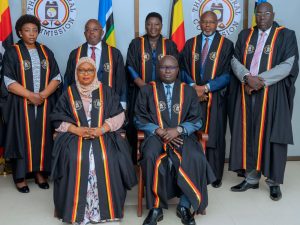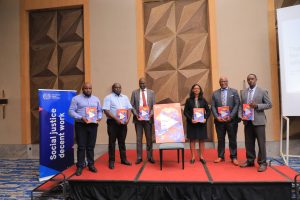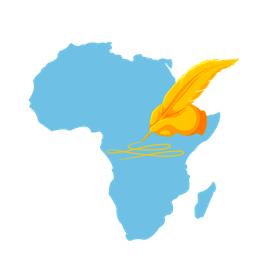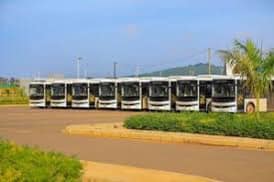
#OutToLunch: The 2025 money guide to survive Uganda’s high dependency ratios
By Denis Jjuuko The year has kicked off with graduations for thousands of students both at Makerere University and Muteesa I Royal University. Many other universities will be holding similar ceremonies throughout the year. Graduation is one of the major pathways to employment. These ceremonies come at a time when Uganda Bureau of Statistics has just released a report that indicates a high dependence ratio for Ugandan workers. Apparently, the dependency ratio for persons aged 14 to 64 years stands at 83.8 percent. This means that “for every 100 working persons, there were 84 dependents,” according to a media report quoting the study. That is such a huge number. Ugandan workers largely work for dependents and that isn’t about to change. The average pay for a Ugandan worker is a meagre Shs200,000 per a month. So how does one survive in such an environment? There are many things that one would have to do to be able to celebrate another New Year’s Day in one piece. Since the year has just started, here is a 2025 money guide. Hopefully, it helps. Donations – There are a lot of expectations and sometimes entitlement. Some parents and guardians and people who fall in that category will frequently quote the 10 commandments particularly the one on honoring them. You will be expected to look after them, to share some money with them. In the informal sector, they may even demand that they receive the salary on your behalf especially in cases where they helped you get the job. The religious people will quote the Bible for some 10 percent. Many people will expect you to donate something but remember you can only give what you have. But since we are a social lot, set a certain amount to donate every month and live by it. Save and invest – Since you can only give what you have, you will need to save but saving alone won’t do much. You need to invest. That way you may have what to donate or actually nothing much to give. You would have to set aside a standard amount of money whenever you receive an income so that it goes into this. Unlike in the past, there are now many options such as unit trusts and treasury bills and bonds among others that allow you to accumulate money that you may invest elsewhere with time or leave it to grow. If you don’t have the discipline to save, identify five or so friends who are honest and do it together. Bank standing orders may be another solution. Emergency fund – But when saving and investing, remember there will always be some emergencies. You may fall sick or somebody you care about might. An emergency fund helps you not call everyone for a bailout. You draw money outside your main savings and investment account to cater for this. By emergency fund, I don’t mean money to attend a brunch at some hotel on Sunday. Debt payments – One of the advantages of living in a country like Uganda is that debt is many times avoidable. Commercial banks hardly issue out credit cards for all sorts of things like food and clothing. If they do, it is to their high net worth customers, who are very few in Uganda. It is fairly easy to only eat what you can afford. And since many people who pretend to sell designer clothes import fake ones, there is no need to spend money on such. But fintechs have made it easy to borrow using your phone. Only borrow when you can’t avoid it and pay it back as soon as possible to avoid high interest rates over a very long period unless if you are paying for your home or investing in a business. A personal car is great but it doesn’t have to be so expensive. There are lots of broke people selling off their cars, buy from them instead of going to the “bond” in Nakawa or Kyambogo. Skillset improvement – The biggest way to improve your income is through skills. Employers are looking for people with particular skills, who are good or can become good at what they do. By just watching YouTube tutorials, there are lots of things one can learn depending on their chosen profession or career interest. Watch, learn, practice. Be innovative—not by necessarily creating new things rather finding different ways to do something. Date within your means – If you are a man living in Kampala and of average means, you will have to date within your means. Not somebody who wants to drink whiskey by the bottle in Kololo or Bugoloobi bars. Not somebody who is pressurizing you to buy a Subaru, rent a fancy apartment in Kyanja and fund her holiday (read photoshoot) in Dubai. If she is inviting 50 friends for her Kukyala, that is a red flag! The writer is a communication and visibility consultant. djjuuko@gmail.com











